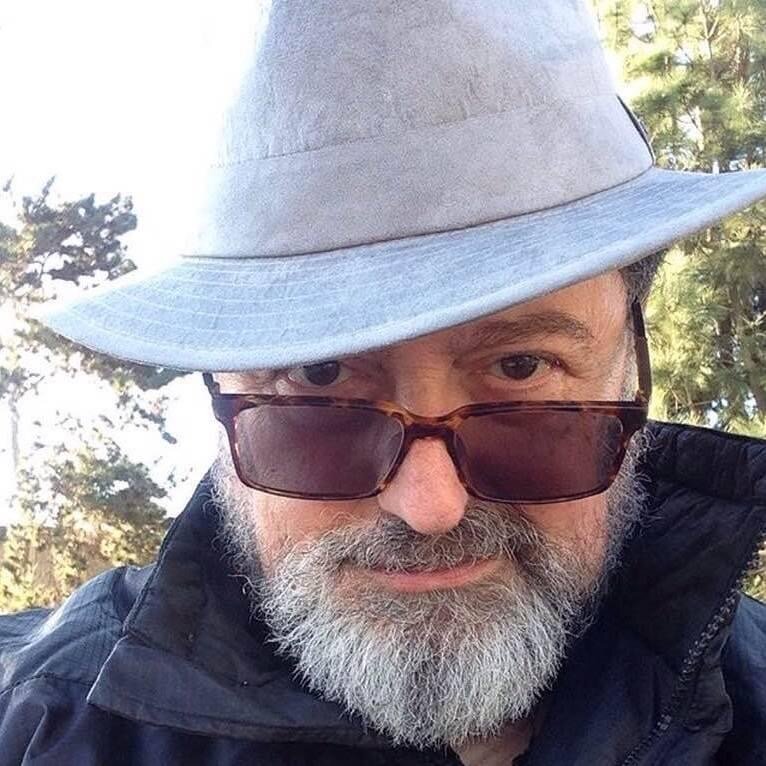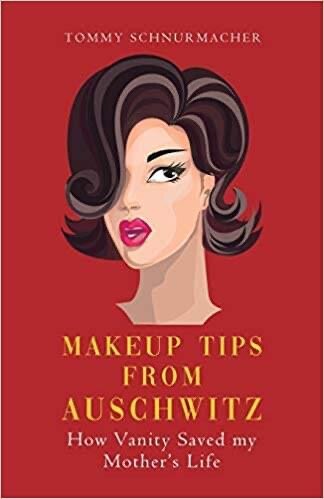Tommy Therapy
By the time the great Tommy Schnurmacher and I have finished our interview, I feel like I owe him 150 dollars for the hour of counselling he has just generously offered to me. That is one of Tommy’s great gifts that is not widely known in public. The former talk show host turned best-selling author has a way of making everyone in his presence feel special and heard. It’s something he learned growing up with his spectacular and spectacularly wounded, mother.
As the child of two holocaust survivors, Tommy admits he’s an expert at catastrophization. “I have had decades of therapy fighting that,” Tommy shares. “You have to stop yourself from always going for the worst possible outcome, because chances are it’s not that bad, and, if it is, you’ll get through it then.”
But he’s also highly-skilled at turning lemons into lemonade, seeking the positive in every situation, looking, keenly, for ways to make people feel better.
“Being positive, that’s an acquired skill. My mother’s default position was not “it’s always positive.” Her default position was, “it was awful.” I had to draw it out of her. It wouldn’t occur to her to be naturally like that, I had to draw it out.”
Tommy shares the poignant, heartbreaking, but also sometimes hilarious, tale of his relationship with his mother Olga in his recently released memoir Makeup Tips From Auschwitz: How Vanity Saved My Mother’s Life. The book is an eye-opening and often humorous account of his own incredible life journey, and also recounts, with frank horror, the story of how Olga survived the monstrosities of the Auschwitz death camps.
The role of best-selling author is Tommy Schnurmacher’s 3rd, even 4th act.
In his 20’s Tommy wrote a daily entertainment column for the Montreal Gazette and served as the newspaper’s society editor. His career in radio began at CHOM-FM where he worked as a theatre critic. Then in 1996, he shifted completely out of the entertainment world and established himself as a political authority on his daily talk show on CJAD. He captained that show for 21 years before taking early retirement in 2017, and since then he hasn’t looked back.
“It had become a daily grind,” Tommy explains. “I had done it long enough. And I really liked the idea of doing something different and being open to all kinds of things because you’re available to do things you couldn't do before.”
He was determined to turn the page, and so he arranged for his partner to be there waiting for him in a cab as he signed off from his last radio show at noon. They were packed and ready to head to the airport to begin the next adventure. His plan was to travel the world and write his memoir, but he still had one great foe to battle to get it done: procrastination.
“It’s the number one challenge,” Tommy explains. “Twitter, as far as I’m concerned, is like crack cocaine. It’s just intermittent reinforcement; one article, then the next, then the next.” He found himself avoiding the very thing he so wanted to do: write his book. “To my right here in my office,” Tommy shares, “are 75 to 80 books on writing. The whole point of that is not to learn how to write, it is to delay writing.”
So, he tricked himself into writing, a little at a time. First by promising his Facebook followers that he would post a few new pages every single day by noon. “Once the commitment was there, I had to follow through,” he explains.
Then, to take it to the next level, he wrote a donation check to the Donald Trump re-election campaign, put it in a sealed envelope, and gave it to his friend with strict instructions: “If I don’t deliver pages to you every day, you have to mail that cheque.” Needless to say, the cheque never got mailed, and the 278-page fully complete book is now a best-seller on Amazon.
“It’s just like exercise,” Tommy’s now coaching me. “You set a timer, 5 minutes a day. Tell yourself, I’m going to write for 5 minutes a day, and then of course once you sit down for that 5 minutes you end up writing for much longer. But that’s the trick. You have to break the barrier of inertia. If you want to write, don’t read about writing, just write.”
Before our therapy session/interview is over, this great master of reinvention has two more critical tips to share on thriving through a dramatic change in life and moving on. Tommy and I both lost our mother’s in 2019, and he shares with grace, and openness how he survived her final days.
“I remember sitting with my mom in the hospital toward the end when things were really dire, I thought: I could ask them to torture her, or kill her. Those were my two options. I would walk away from it now and then, and sometimes a nurse would walk by and smile, and I’d say to myself: that smile meant something.”
“There’s a whole other world happening outside of this tragedy. The most important thing, if you’re dealing with something like an illness, or a tragedy, is that you can’t make it disappear, or minimize it, but you can remember that’s not all there is. It’s just one of the blocks in your life.”
The kindness with which he relates this very personal story moves me immensely. But he’s not done yet. He wants to make sure I’m going to be ok. So he starts, as he has clearly practiced over a lifetime with his mother, making lemonade, for me.
“You’re not just a TV anchor, you’re a vibrant woman who worked in TV. That’s a very important thing. I thought I was only a gossip columnist, that’s what I do; but then it became: no I am a person who does gossip columns, and I am a person, who can do other things. In other words, you have to ground yourself in WHO you are, not what you do.”
“Don’t try to move into your second act trying to figure out what other people want you to do. That will never work,” Tommy reveals. “You won’t get anywhere like that.”
“Do what you love. Do what you want to do even if not one single person is interested, even if it's dressing up like Desdemona on YouTube. Never mind they, they, they, do what YOU feel like doing. I didn’t write the book because I wanted people to like the story, I wrote MY story. It turned out they liked it and that’s great, but that’s not why I wrote it. It was from the heart.”
And that’s the final piece of advice from this master of reinvention who just keeps growing, keeps remaking himself, and keeps finding ways to push himself toward his dreams.
“It’s very important not to thwart or impede the creative process,” Tommy sums up. “Because we are so used to finding all the reasons that it’s no good, that it can’t work. Stop that. It doesn’t matter if it can’t work. No idea is a bad one. You’re editing your story before the writing has happened. Do something that you find interesting or exciting, and see what happens, let it play out, put it out in the universe, and when your project blows up and it's all going crazy, you can thank me.”
No, Tommy, I’ll thank you now. And I really do owe you for the therapy session.
Tommy Schnurmacher’s Makeup Tips From Auschwitz: How Vanity Saved My Mother’s Life is available in bookstores and on Amazon.
You can follow Tommy’s adventures on his web page TalkRadioTommy.

